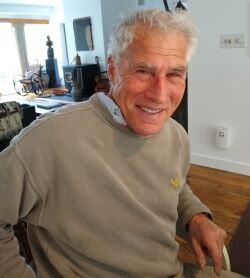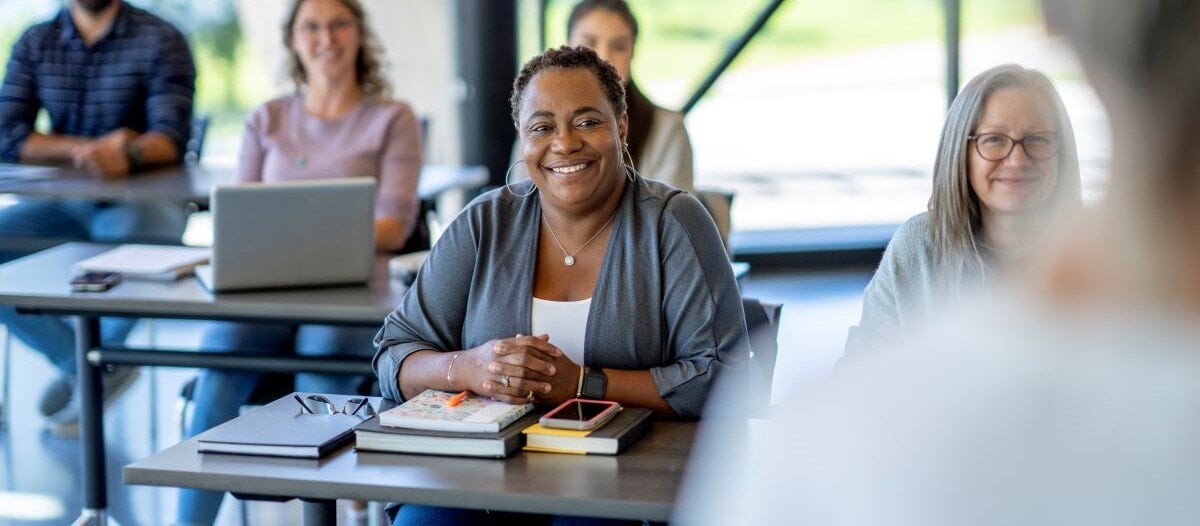IFMA’s SFP® Credential
A global perspective

IFMA’s most comprehensive and globally relevant credential program covering the evolving demands of environmental responsibility is the Sustainability Facility Professional® (SFP®). As of March 2025, there are almost 2,400 SFP credential holders around the world.
Introduced in 2011 and updated in 2022 to address significant changes in the sustainability arena, such as energy purchasing and consumption, ESG reporting and the circular economy, the SFP is a self-paced, assessment-based program, specifically designed to enable FMs to achieve and demonstrate their proficiency in economic, environmental and social issues as they apply to the built environment. The curriculum of the SFP program includes three distinct and integrated components:
-
Strategy and alignment for achieving sustainable FM;
-
Management of sustainable facilities;
-
Operation of sustainable facilities.
Most significantly, the SFP program is not reliant on any specific green building reporting or building certification program such as Leadership in Energy and Environmental Design (LEED), the WELL Building Standard, BREEAM (U.K.), DGNB (German) or Green Star (Australia). It can support any of these assessment and rating systems. The SFP was designed to provide insight, best practices and a strategic framework to support an organization’s environmental responsibilities, while also improving the triple bottom line.
SFP Scholarship Program
In 2021, the Eric Teicholz Sustainability Scholarship was established and offered through the IFMA Foundation. The scholarship pays SFP tuition costs and provides awardees with free membership in IFMA and IFMA's Sustainability Community for a period of three years. Students and young professionals studying or practicing facility management or related fields who have a demonstrated interest in sustainability as it relates to the built environment are eligible to apply. Diversity, financial need and the potential impact of the SFP on both the applicant and community are part of the selection process.
Interest in the program grew rapidly, and sponsors were solicited in 2023 to meet the increasing number of applications. The following year, the program’s evaluation team awarded 28 scholarships. Applications and sponsorship awards are on track in 2025 to at least double those received in 2024. As of April 2025, 33 sponsored scholarships have already been received. At present (not including 2025 awardees), Eric Teicholz Sustainability Scholarship awardees are located in 26 countries (see map below).

Case Studies
The global impact of these awards is encapsulated in these brief case studies of projects that scholarship earners have completed within the scope of the SFP.
- Josh McIlwain, 2024 Awardee, U.S.
Stout Street
 Stout Street Foundation is a provider of short- and long-term drug and alcohol treatment and wraparound services in the Denver, Colorado, area. Their existing campus buildings have a backlog of preventive maintenance and service issues that require both immediate operations and maintenance upgrades as well as capital planning. In addition, the Stout Street Foundation prefers to engage its residents in the performance of duties and tasks to assist their reintegration into the workforce utilizing their existing skillsets, from the kitchen to facilities maintenance work and beyond.
Stout Street Foundation is a provider of short- and long-term drug and alcohol treatment and wraparound services in the Denver, Colorado, area. Their existing campus buildings have a backlog of preventive maintenance and service issues that require both immediate operations and maintenance upgrades as well as capital planning. In addition, the Stout Street Foundation prefers to engage its residents in the performance of duties and tasks to assist their reintegration into the workforce utilizing their existing skillsets, from the kitchen to facilities maintenance work and beyond.
Work begins with getting a clear picture of the buildings’ energy use intensity (EUI), completing benchmarking and compliance for State of Colorado’s Building Performance Standards, project managing the upgrades and repairs, documenting and advancing the plans for improved O&M protocols with an eye toward saving energy, reducing waste and preventing water loss. It also includes seeking out available incentives, rebates and financing; then upskilling and providing FM training to the resident staff, satisfying all aspects of the triple bottom line: people, planet and profit.
-
First, the people. As a drug and alcohol rehab facility, the occupants’ thermal comfort level is critical, as their bodies work through the detoxification process. The systems in place are insufficient to address and facilitate an environment of recovery. By improving operations and maintenance (O&M), and reducing long-term operating expenses (OpEx), Stout Street can focus on the mission of saving lives. In addition, by training and upskilling the staff, they are improving their long-term career prospects while serving their human-based interests.
-
In terms of the planet, the improvements in energy efficiency will reduce energy consumption, thereby correlating to a reduction in greenhouse gas emissions, compounded long term through deeper understanding and improved performance in O&M procedures.
-
In terms of profit, the reduction in OpEx will impact the bottom line, as well cost-avoidance through compliance, and the improvement in efficiency of the building’s systems, further allowing for resources to be focused on their mission, which is saving lives.
Goals & objectives:
-
Saving lives through an improved allocation of resources toward treatment, which would otherwise be spent elsewhere, while healing the world from the scourge of drug and alcohol addiction
-
Compliance with energy regulations/building performance standards
-
Energy savings
-
Improved O&M
-
Development of best practices
-
Training, career and workforce development
Types of data collected:
-
EUI score
-
Energy, waste and water savings (from utility service providers)
-
Funding dollars deployed
-
Projects completed
-
Resident/staff scoring
-
“Graduates” returning later in their lives to give back and perpetuate the legacy
Results:
- The agreement is in place between JayMacks Consulting and Stout Street Foundation
- Energy utility data has been collected
- Benchmarking has begun
- Exploration of incentives and benefits, rebates and financing is underway
- Invitation and attendance of client staff to IFMA’s Denver Chapter Sustainability Committee meetings
- Gloria Williams, 2022 Awardee, Ghana
Initiative to separate waste in managed properties
 Having acquired extensive knowledge after completing the SFP – and as the property management coordinator at Akka Kappa, a real estate company in Ghana – Williams initiated a project in 2024 to separate waste from recycling. Due to the volume of waste generated in the company’s managed facilities, Akka Kappa partnered with Zenzero Association, an organization that recycles cans and plastics. Akka Kappa introduced coded dust bins at their various settlement sites to help segregate waste generated in the compounds.
Having acquired extensive knowledge after completing the SFP – and as the property management coordinator at Akka Kappa, a real estate company in Ghana – Williams initiated a project in 2024 to separate waste from recycling. Due to the volume of waste generated in the company’s managed facilities, Akka Kappa partnered with Zenzero Association, an organization that recycles cans and plastics. Akka Kappa introduced coded dust bins at their various settlement sites to help segregate waste generated in the compounds.
From Zenzero’s LinkedIn profile:
Zenzero Association and Akka Kappa have signed a partnership aimed at promoting a more sustainable environment and fostering a stronger culture of waste sorting. Through shared visions and strategies, a nonprofit (active in Ghana for five years with environmental protection and education projects) teamed up with Akka Kappa, a key player in the Ghanaian real estate market. This collaboration has already shown tangible results: in two compounds managed by Akka Kappa, bins for the separate collection of plastic and aluminum cans have been installed, raising awareness among apartment owners and tenants about proper waste disposal. Zenzero Association is responsible for collecting and recycling plastic and aluminum, initiating a circular and sustainable economy that benefits both the environment and local communities. This marks an important first step toward a more sustainable planet, starting here in Ghana, and highlights the growing importance and value of collaboration.
SFP employed in the project:
The valuable aspect of the SFP program employed for this project relates to waste management – one of the critical issues developing countries such Ghana must address, which spans disposal to recycling. The cities do not have enough land space to be used as landfill sites; so, it is imperative that sustainable solutions such as recycling be adopted to ensure a sustainable environment. Akka Kappa’s collaboration and partnership with Zenzero created and promoted a sustainable environment, crucial to ensuring sustainable cities for growth and development for the betterment of present and future generations and aligns with the UN Sustainability Development Goals (SDGs) 6, 9 and 11.
- Jose Diaz, 2023 Awardee, Leon, Mexico
Photovoltaic system
 This case study addresses some of the challenges involved in designing, commissioning, installing, supervising and recommissioning a 510-panel photovoltaic (PV) system for a food manufacturing company.
This case study addresses some of the challenges involved in designing, commissioning, installing, supervising and recommissioning a 510-panel photovoltaic (PV) system for a food manufacturing company.
Objectives:
- To reduce the cost per unit of energy consumption
- To decrease greenhouse gas (GHG) emissions
Implementation process:
-
Conduct an energy consumption analysis based on historical energy bills and actual consumption measurements
-
Do electrical design and perform engineering analysis
-
Recommission the existing electrical systems and building infrastructure
-
Provide supervision of the installation work by the designated external Project Management Office and electrical inspector, which includes commissioning and measuring the overall performance of the new PV system pertaining to safety, security and electrical metrics
-
Assist stakeholders in their analysis of and decision-making regarding the implementation of the PV system
-
Reduce costs per unit of energy consumed
-
Contribute to the reduction of GHG emissions
-
Support technological solutions that benefit the environment
-
Raise awareness about environmental solutions
Data collected:
-
Energy consumption
-
Energy bills
-
Building and electrical infrastructure data
-
Electrical measurements (voltage, amperage, frequency, power factor, TDH)
-
Nondestructive test (thermography)
-
Machinery operations
-
Energy generation equipment selection
-
Expected PV system operation performance scenario
Results:
-
The PV system resulted in monthly savings of 85 percent on energy bills
-
The PV system operated within the expected metrics
-
It achieved a baseline result of 230 CO2 tons of emissions-reduction per month
-
The project was executed on time (using SFP SMART process), achieving desired quality and sustainable results
-
The project avoided unexpected costs
-
Its execution was divided into different stages to achieve successful implementation
The SFP provided Diaz with key knowledge and skills to assess, plan, execute a real sustainable project and evaluate triple bottom line results. He developed the vision, tools and insights to see the big picture and think strategically while creating a technical-financial project concept and execution. As a result of using SFP processes, he was put in charge of supervision and, according to the client, was able to deliver planned results that exceeded expectations. The specific processes described and used within the SFP were applied to commissioning, electrical engineering and overall project management.

Read more on Career Advancement , Sustainability and World Workplace 2025 or related topics IFMA Foundation , Credentials , Sustainability Facility Professional (SFP) and Case Study
Explore All FMJ Topics








